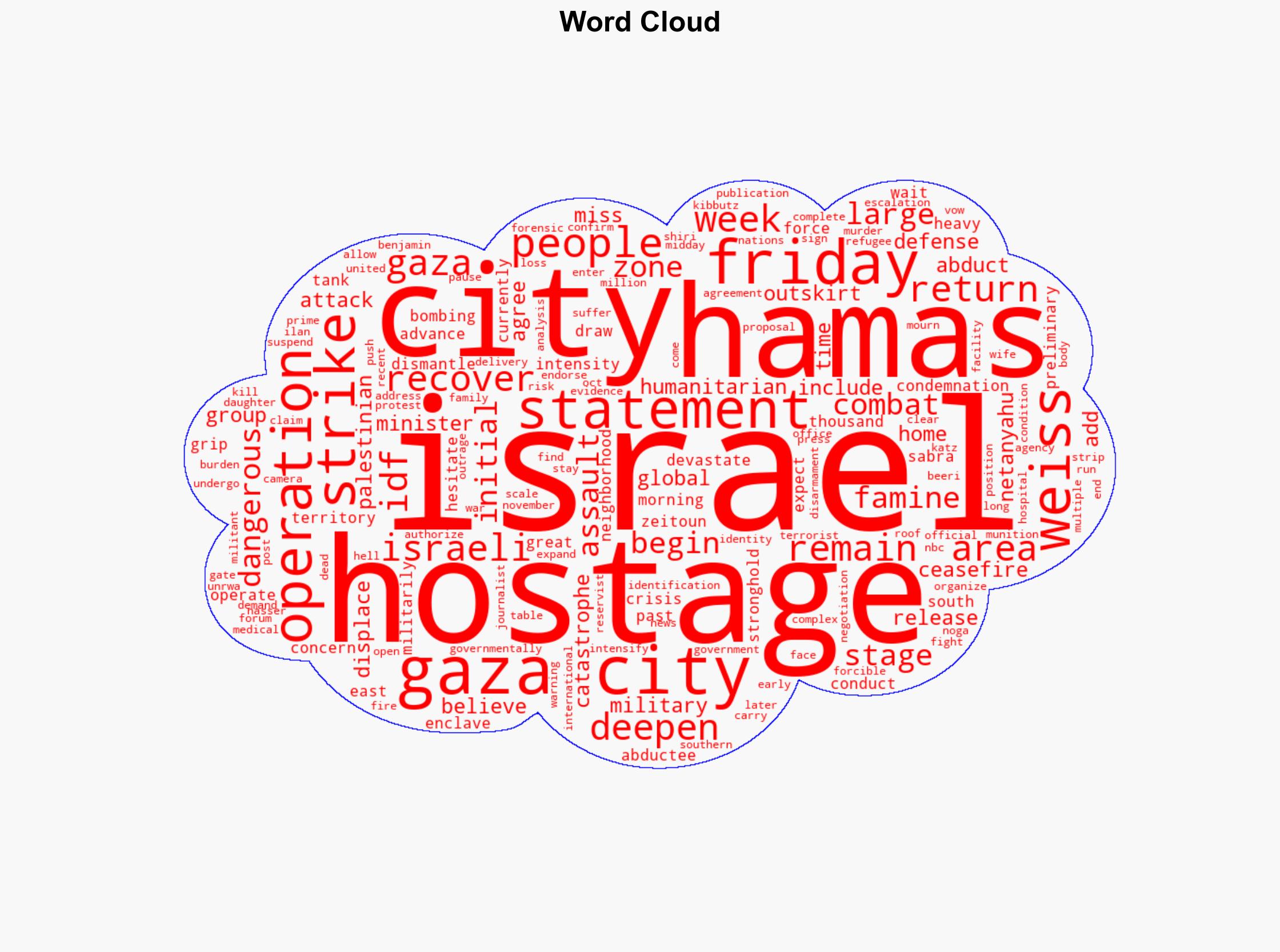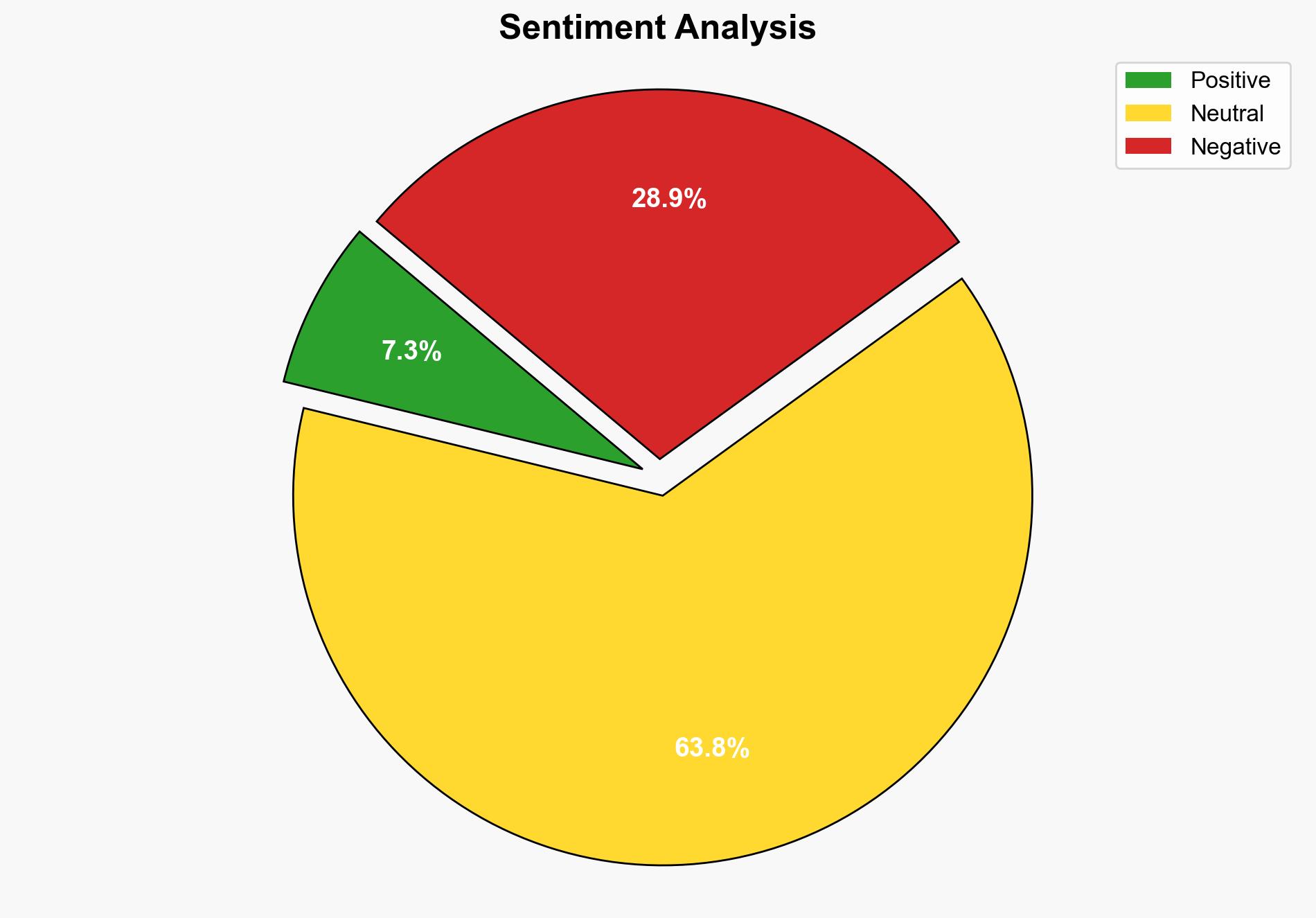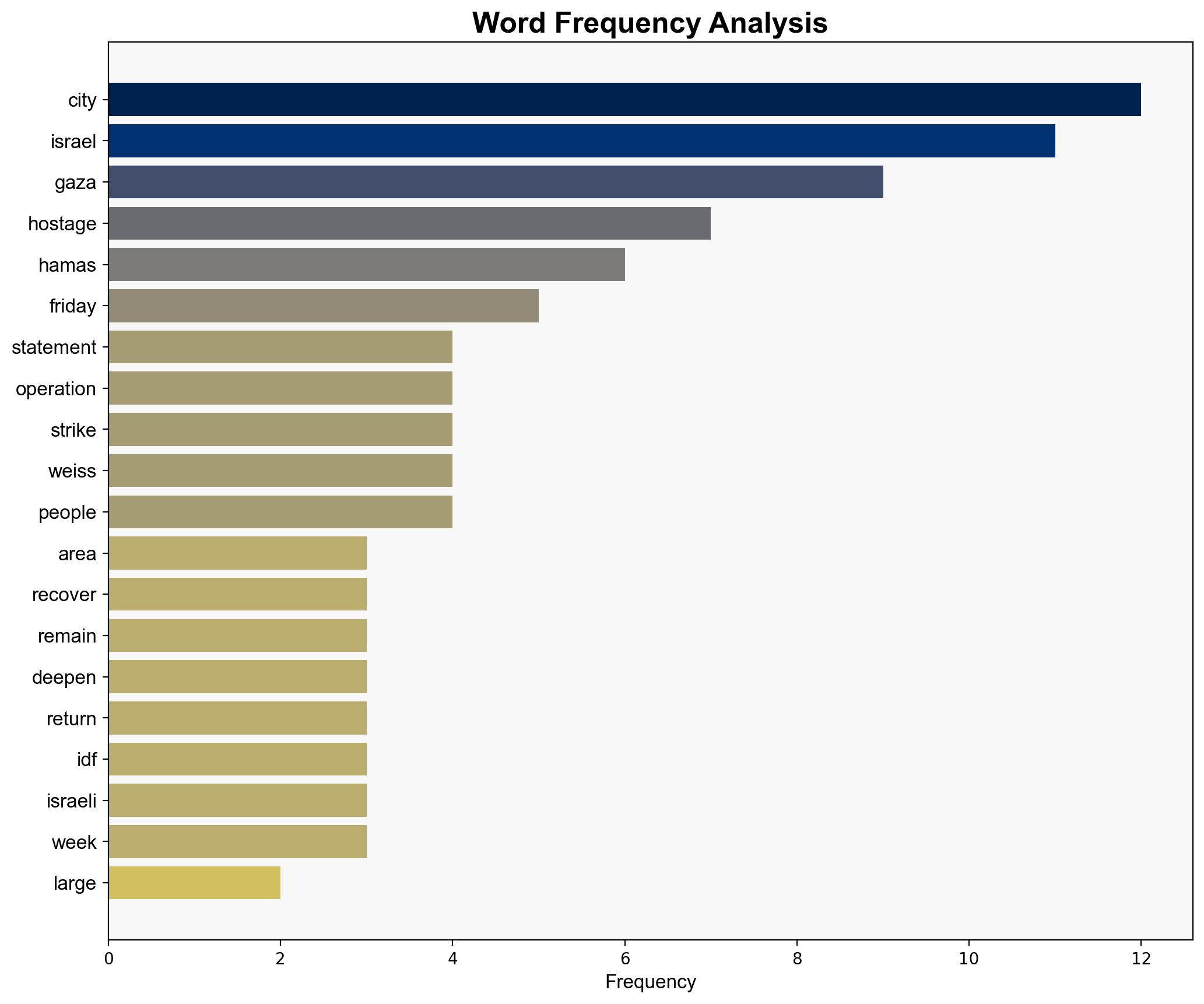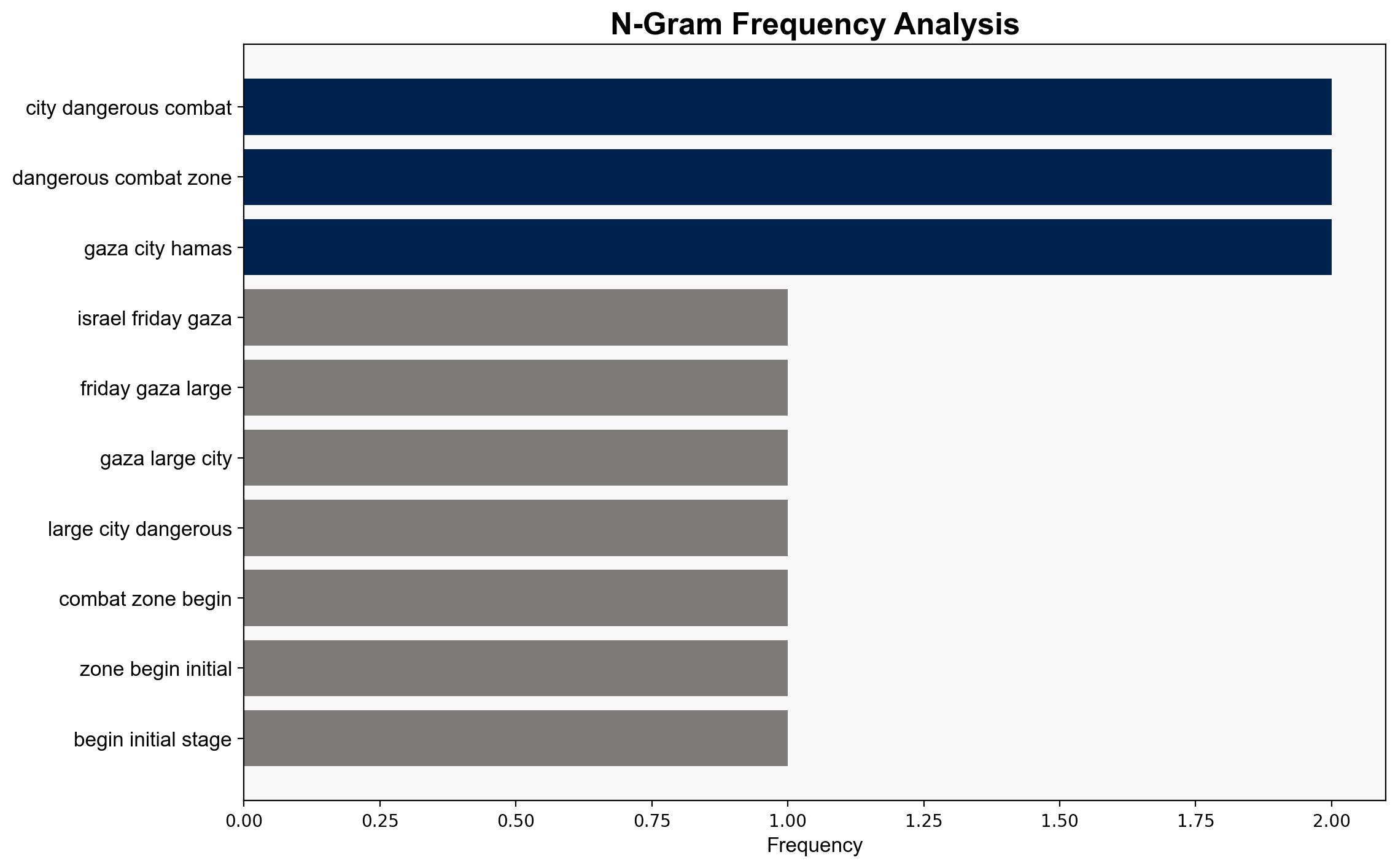Israel declares Gaza City a combat zone says it has begun ‘initial stages’ of attack – NBC News
Published on: 2025-08-29
Intelligence Report: Israel declares Gaza City a combat zone says it has begun ‘initial stages’ of attack – NBC News
1. BLUF (Bottom Line Up Front)
The situation in Gaza City is escalating as Israel initiates military operations, potentially leading to significant humanitarian consequences. The most supported hypothesis is that Israel aims to dismantle Hamas’s infrastructure, despite international condemnation and humanitarian concerns. Confidence in this assessment is moderate due to the complexity of the situation and potential for misinformation. Recommended action includes diplomatic engagement to mitigate humanitarian impact and encourage dialogue for a ceasefire.
2. Competing Hypotheses
1. **Hypothesis A:** Israel’s military operations are primarily aimed at dismantling Hamas’s military and governmental infrastructure in Gaza City, with a secondary goal of recovering hostages and deterring future attacks.
2. **Hypothesis B:** Israel’s actions are a strategic maneuver to pressure Hamas into negotiations for a ceasefire and hostage release, using military operations as leverage.
Using the Analysis of Competing Hypotheses (ACH) 2.0, Hypothesis A is better supported by the intensity of military operations and the stated objectives of dismantling Hamas. Hypothesis B is less supported due to the lack of evidence indicating a willingness from Hamas to negotiate under current conditions.
3. Key Assumptions and Red Flags
– **Assumptions:** It is assumed that Israel’s primary objective is the dismantling of Hamas, and that military operations will continue until this is achieved. It is also assumed that international pressure will not significantly alter Israel’s strategy.
– **Red Flags:** The potential for misinformation from both sides, the lack of clear communication regarding hostages, and the possibility of unreported civilian casualties are significant concerns. Inconsistent reports about the humanitarian situation could indicate attempts at deception or information control.
4. Implications and Strategic Risks
The escalation in Gaza City could lead to a broader regional conflict, drawing in neighboring countries and increasing tensions in the Middle East. The humanitarian crisis may worsen, leading to international intervention or sanctions. Economic impacts could include disruptions to regional trade and increased security costs. Cyber threats may also rise as both sides leverage digital tools for propaganda and disruption.
5. Recommendations and Outlook
- Engage in diplomatic efforts to establish a ceasefire and facilitate humanitarian aid delivery.
- Monitor regional actors for signs of escalation or intervention.
- Prepare for increased cyber threats and misinformation campaigns.
- Scenario Projections:
- **Best Case:** Successful negotiations lead to a ceasefire and humanitarian aid access.
- **Worst Case:** Full-scale war with regional involvement and severe humanitarian fallout.
- **Most Likely:** Continued military operations with intermittent pauses for humanitarian reasons, leading to prolonged conflict.
6. Key Individuals and Entities
– Benjamin Netanyahu
– Ilan Weiss
– Shiri Weiss
– Noga Weiss
– Israel Defense Forces (IDF)
– Hamas
7. Thematic Tags
national security threats, humanitarian crisis, regional conflict, military strategy





